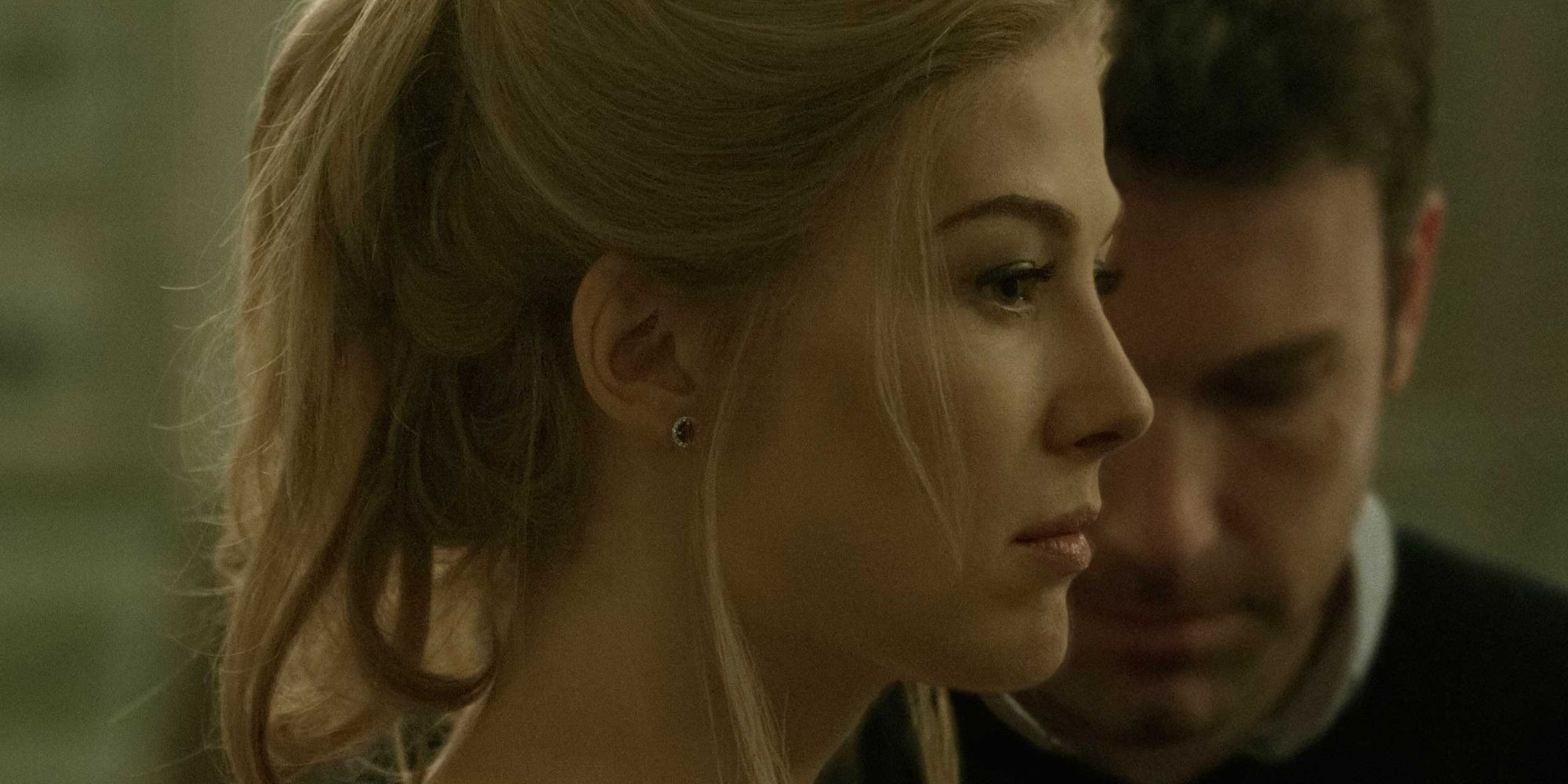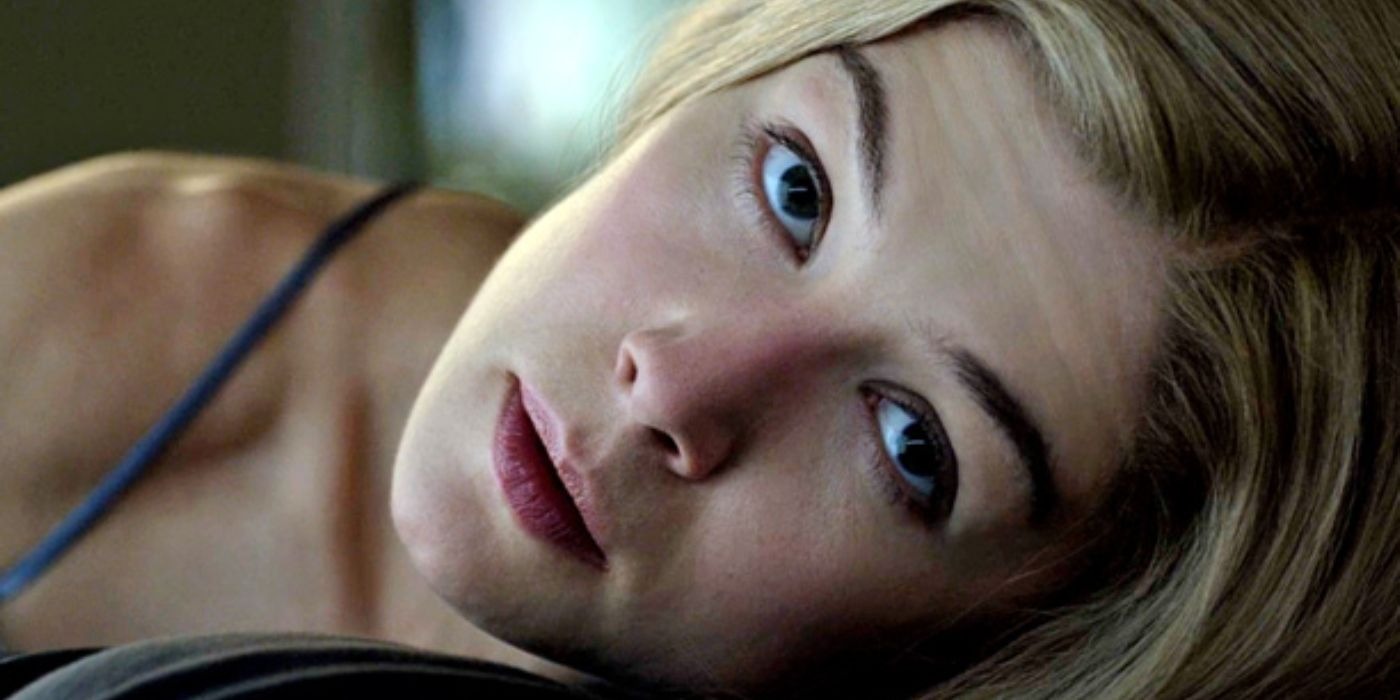Crime media has become quite popular. In 2023, crime and genre television led the Netflix streaming charts, according to a report by CNBC. Viewers are drawn to dark, complex stories, especially those featuring heroes entangled in the challenges of modern life. It’s no surprise that there’s a certain release in comparing the troubles of the real world with the amplified struggles of a fictional one.
Few creators manage this as effectively as Gillian Flynn. Though she had known successes with her earlier works, Flynn’s mainstream breakthrough came in 2012 with the release of “Gone Girl,” her third novel, which was later adapted into a film by director David Fincher in 2014.
The film was both a box office hit and received critical praise, with star Rosamund Pike earning an Academy Award nomination for her performance. “Gone Girl” quickly became a topic of widespread conversation.

At the heart of many of these discussions was its bold, unexpected ending. Audiences typically anticipate that the villain will face punishment. However, in “Gone Girl,” Amy Dunne (played by Pike) does not follow this predictable path.
After her elaborate plan to fake her death and frame her husband, Nick (Ben Affleck), for murder, is nearly foiled, she creates one final twist. Amy artificially inseminates herself using Nick’s sperm, ensuring that he remains bound to her for the foreseeable future.
Although this conclusion aligns thematically with the exploration of modern marriage in “Gone Girl,” it still provoked a lot of reactions, much like the ending of “Sharp Objects,” another standout adaptation of Flynn’s work. Here, we will break down the ending of “Gone Girl,” analysing its meaning and placing it within the broader context of Flynn’s body of work.
Amy staged her disappearance
To fully appreciate the events that played during the 150-minute runtime of “Gone Girl,” it’s necessary to recall the key moments. Director David Fincher, sticking to the novel’s dual-point-of-view structure, introduces Nick Dunne as an unlikable husband.
He and Amy move to his hometown of North Carthage, Missouri, after Nick’s irresponsible spending exacerbates their financial troubles. There, he sets up a local bar while teaching on the side, all while having an affair.
Though flawed, Nick is depicted as someone who, despite his faults, has a certain charm. In discussing the creation of Nick’s character, Flynn shared with The Guardian, “He just needs to be a believable person. It helped giving him a biography close to mine.”
On their fifth wedding anniversary, Nick comes home to find signs of a struggle. Worse, Amy has vanished. The story begins with an eerie echo of the real-life case of Laci Peterson’s disappearance, but Flynn has something different in mind. Amy has staged her disappearance to punish Nick, confident that he will be blamed for her death.
Nick begins his own defense as Amy watches his every move from a distance. It becomes a twisted, poisonous game of chess where both players, despite their outward resistance, understand each other more deeply than anyone else. This is a marriage that shows its dark side more clearly than ever before.
Nick and Amy: Until death do them part
As “Gone Girl” progresses into its third act, things intensify. Amy seeks refuge with her former friend (and stalker) Desi (Neil Patrick Harris) after being robbed and left with little means to continue her charade.
She plays up an exaggerated story of domestic abuse to gain Desi’s sympathy, but he too is in no better a position, treating Amy more like a captive than a friend. Meanwhile, Nick arranges for a televised interview with Ellen Abbott (Missi Pyle), an attempt to win back public favour and lure Amy home.
The plan succeeds. Amy kills Desi, sets up his house to make it look like he was the true mastermind, and returns home, drenched in his blood. In a twisted reunion, the couple is back together, though it’s far from a happy reconciliation.
However, the reunion is not what it seems. While Nick’s sister Margo (Carrie Coon) and Detective Boney (Kim Dickens) are eager to see Amy apprehended, Nick shocks everyone by declaring that he plans to stay with Amy. At the core of the novel’s theme, Nick and Amy pretend to have a perfect marriage.
This disturbing undercurrent runs throughout the film, with the suggestion that no matter how well spouses may know each other, it’s all a performance. The roles must be convincing for the act to succeed.
The film ends on a chilling note, and in an interview with Entertainment Weekly, Flynn explained that she intended for it to leave audiences feeling uneasy, stating, “I did think it all through, and for me, I’ve always loved those endings of unease.”
Nick and Amy are made for each other
The endings of both the book and the film of “Gone Girl” converge on the same dark resolution. Amy returns home and uses her fake pregnancy to trap Nick into staying with her.
In the book, there’s a hint, through Desi’s mother’s outburst, that Amy might eventually face consequences for her actions, but the film does away with this ambiguity. Amy is free, and Nick delivers a chilling line: “What have we done to each other? What will we do?”
Nick’s mindset at the conclusion is what allows “Gone Girl” to delve into the dark realities of modern relationships. There’s a fascinating connection to Erving Goffman’s concept of “face-work,” which concerns the social persona individuals create through their actions.
Although it seems that Nick stays with Amy to save face, the story subtly suggests that he’s fallen in love with her again — the “Amazing Amy” — despite everything that’s transpired.
Both Nick and Amy know each other better than anyone else, and as twisted and violent as their relationship may be, they don’t desire anyone else. They are truly made for each other, crime spree and all.
Gone Girl defies thriller conventions
Flynn’s ending for “Gone Girl” is masterfully aligned with the story’s themes, and, in her own words, it’s the only ending that made sense narratively. In Hollywood, especially with mid-budget thrillers adapted from best-selling novels, it’s easy to forget that these films are often driven more by commercial motives than artistic integrity. “Gone Girl” grossed a staggering $369 million worldwide on a budget of just $61 million, showing that the film had far-reaching appeal.
In crime cinema, especially domestic crime, there’s a natural desire to see villains punished — think of Norman Bates in “Psycho” or Buffalo Bill in “The Silence of the Lambs.” However, this would not have worked for “Gone Girl.”
In a conversation with Entertainment Weekly, Flynn explained, “People think they would find that satisfying, if she were caught and punished… I promise you, I just don’t think you’d find it satisfying for Amy to end up in a prison cell just sitting in a little box.”
Asian crime thrillers — such as “Oldboy,” “I Saw the Devil,” and even “Parasite” — tend to conclude on grim, unresolved notes. “Gone Girl” stands in line with some of the best of contemporary cinema in this regard. Punishing Amy or locking her up would have been a predictable ending, but by avoiding this, Flynn managed to give the film a distinct, unconventional conclusion.
Narcissism is at the core
Amy Dunne is a complex character, but finally, she is a narcissist. Rosamund Pike, who portrayed Amy, discussed how Amy’s childhood experiences — having her life used as inspiration for a successful series of books — shaped her narcissistic tendencies.
Pike described Amy as a character who, feeling both entitled and inadequate, developed into an insecure adult with impossibly high expectations of herself and others. For Amy, the idea of being abandoned was far more terrifying than the prospect of jail. To keep Nick around, she resorted to using a pregnancy as her final, desperate measure.
Ben Affleck, who played Nick, described the film as a portrayal of how we wear masks in relationships. When the doors close, we reveal who we truly are, and sometimes that person is darker and scarier than we imagine.
Pike also explained that, in her view, “These two narcissists got exactly what they deserve: they got each other.” There is no Nick without Amy, and no Amy without Nick. They ensured it would always be this way.
An indictment of true crime culture
“Gone Girl” came at a time when Hollywood was grappling with its history of exploiting true crime stories. The film criticizes the culture of true crime fandom, particularly how it allows peripheral characters to insert themselves into stories that are not about them.

Characters like Casey Wilson’s Noëlle Hawthorne embody this critique, as she profited from Amy’s story while casting herself as the centre of attention. Flynn’s writing calls out the exploitation of violence against women, particularly white women, by the media.
Missi Pyle’s character, Ellen Abbott, is a representation of how the media exploits Amy’s saga, shifting allegiances as needed to sell the most compelling story. Amy, though psychopathic, is also incredibly intelligent, and her clues — the ones she leaves to manipulate the situation — are designed with an acute awareness of what the public will find entertaining.
The media thrives on exploitation, which allows Amy to get away with her actions. Sadly, some law enforcement missed the point, interpreting “Gone Girl” as a guide rather than a critique of the true crime ecosystem.
Dark Places and Attack of the Fifty Foot Woman
While “Gone Girl” was initially a standalone story, there has been some speculation about a sequel. However, following the film’s perfect ending, continuing the story would likely diminish the impact of its closing moments.
In 2015, Flynn hinted that a sequel could be possible if the team was willing to reunite, but by 2022, she seemed more interested in touching other projects



